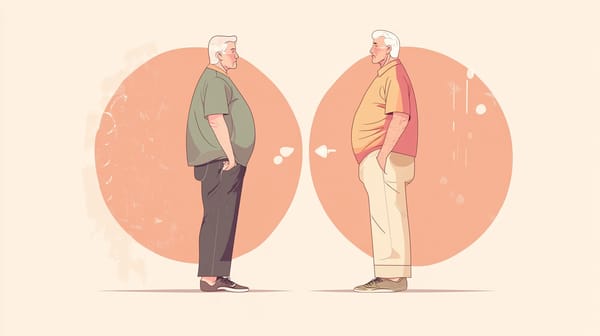Low-Carb Diets: Why They May Do More Harm Than Good

The Problem with Low-Carb Fad Diets
In recent years, low-carbohydrate diets have surged in popularity as a quick fix for weight loss. Trendy eating plans like the Atkins, Paleo, and Ketogenic diets all revolve around drastically reducing carb intake. While some studies suggest that low-carb eating can spur faster short-term weight loss compared to traditional calorie-restricted diets, the differences largely disappear after one year.
As a key macronutrient, carbohydrates play several important roles in the body. Slashing your carb consumption too much can ultimately backfire and undermine your health goals. Here are a few major problems with overly restrictive low-carb diets:
Low-Carb Diets Tend to Lack Fiber
Most dietary fiber comes from carbohydrate-rich foods like fruits, whole grains, and starchy vegetables. According to registered dietitian Diana Gariglio-Clelland, a low-fiber diet raises the risk of serious chronic conditions like cardiovascular disease, diabetes, and certain cancers. Meeting your daily fiber needs is vital for maintaining good health.
Carb Restriction Can Disrupt Gut Bacteria
The trillions of microbes living in your digestive tract depend on fiber to thrive. Limiting carbohydrates can reduce the diversity of these beneficial gut bacteria, warns dietitian Nicole Magryta. Since gut microbes influence nearly every aspect of health, disturbing this delicate balance may have far-reaching negative effects on well-being.
Avoiding Carbs Is Difficult to Sustain
In the real world, steering clear of carbohydrate foods is almost impossible. Birthday cake, sandwich lunches, and pasta dinners are deeply woven into the fabric of everyday life and social gatherings. While you might manage to swear off carbs temporarily, depriving yourself of these common foods is extremely challenging in the long run.
Classifying carbs as "off limits" can also trigger overeating and rebound weight gain once you inevitably start eating these foods again. For most people, excessively restricting carbohydrates is not a realistic or healthy permanent lifestyle.
Your Body Needs Carbs for Fuel and Recovery
Carbohydrates are your body's preferred energy source, especially if you exercise regularly. Although the body can use fat and protein for fuel, it's less efficient than burning carbs. As Gariglio-Clelland explains, following a low-carb diet can leave you feeling tired and sluggish during workouts.
What's more, your body requires carbohydrates to recover properly after exercise. Cutting carbs can slow down the recovery process and make it harder to build strength and endurance over time.
A Balanced Approach to Carbs Is Best
Rather than adopting a restrictive low-carb diet, focus on eating nutritious, fiber-rich carbohydrates in moderation. Complex carbs like whole grains, legumes, fruits, and vegetables provide the energy and nutrients your body needs to function optimally.
For healthy, sustainable weight loss, combine a balanced diet that includes wholesome carbohydrates with regular physical activity. This time-tested approach supports your overall health and well-being, not just the number on the scale.




